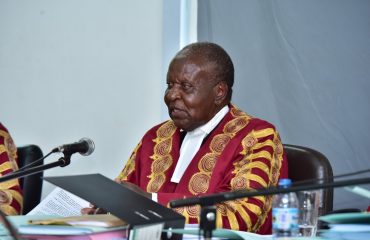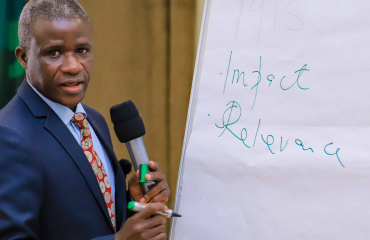
Amidst the ever-evolving dynamics of international relations, the role of hosting and chairing major conferences emerges as a transformative experience for nations, providing a distinctive platform to showcase diplomatic prowess, foster global partnerships, and tackle pressing global challenges. Uganda, distinguished by its rich history and diverse culture, is readying itself to take on a notable role of hosting the Non-Aligned Movement (NAM) and the Group of 77 plus China (G77+China) conferences in January 2024.
Guided by the theme “Deepening Cooperation for Shared Global Affluence,” the NAM conference will convene representatives from 120 member states and invited guests. Furthermore, Uganda is set to assume the chairmanship of both NAM and G77+China, marking a significant leadership role. The tenure of Uganda’s Chairmanship will span three years for NAM and one year for the G77+China. This article delves into the multifaceted benefits that Uganda is poised to accrue as it spearheads these influential gatherings.
Diplomatic Prestige and Global Visibility:
Hosting both the NAM and G77+China conferences concurrently will catapult Uganda’s diplomatic standing onto the global stage. These gatherings, uniting diverse nations, provide Uganda with an unparalleled opportunity to showcase its diplomatic prowess, demonstrating unwavering commitment to fostering international cooperation. This heightened visibility will not only draw attention to Uganda’s economic potential, cultural richness, and strategic importance but also solidify its place as the first country ever to host two such conferences simultaneously.
Strengthening Regional and Global Alliances:
The conferences offer Uganda a unique chance to bolster ties with a diverse array of nations. By fostering collaboration within NAM and G77+China, Uganda can cultivate strategic alliances that extend beyond the conference duration. This, in turn, opens doors for increased trade, investment, and diplomatic support, contributing significantly to Uganda’s economic development and regional stability.
Addressing Global Challenges:
NAM and G77+China conferences serve as platforms for tackling pressing global issues such as climate change, economic inequality, and social justice. Taking a leadership role in these discussions empowers Uganda to actively contribute to shaping solutions and advocating for policies aligned with its national interests. This proactive approach enhances Uganda’s influence in international forums, showcasing its commitment to being a responsible global citizen.
Economic Opportunities and Investment:
The influx of foreign dignitaries, delegates, and media during these conferences promises a substantial boost to Uganda’s economy. The hospitality sector, including hotels, restaurants, and transportation services, stands to benefit significantly. Moreover, exposure gained from hosting major international events can attract foreign investors eager to explore business opportunities in the country. Notably, during his recent visit to Abu Dhabi, H.E YK Museveni extended an invitation to His Highness Sheikh Mohamed bin Zayed Al Nahyan, a move expected to further bolster investment opportunities between Uganda and Abu Dhabi.
Cultural Exchange and Tourism Promotion:
Hosting these prestigious conferences offers Uganda an unparalleled platform to showcase its unique cultural heritage and natural beauty. Delegates and visitors from participating countries will have the opportunity to immerse themselves in Uganda’s rich traditions, diverse landscapes, and vibrant communities. This exposure holds the potential to significantly enhance Uganda’s tourism industry, attracting visitors long after the conferences conclude.
Capacity Building and Knowledge Transfer:
Organizing and chairing these conferences demand a significant investment in organizational capacity and logistics. The experience gained in managing large-scale international events becomes invaluable, providing Uganda with enhanced capabilities for hosting future conferences and events. Additionally, the exchange of knowledge and best practices with other participating nations contributes to Uganda’s institutional development.
Hosting and chairing the NAM and G77+China conferences mark a historic moment for Uganda, offering a unique opportunity to showcase its diplomatic finesse, strengthen global partnerships, and actively address pressing global challenges. Beyond the immediate diplomatic arena, these benefits extend to economic, cultural, and strategic domains, positioning Uganda to harness advantages that will resonate for years to come. As Uganda navigates the complexities of international relations, this leadership role promises to unlock a future of boundless opportunities for the nation.
The writer is the HR & Administration Manager at the Government Citizen Interaction Center (GCIC) In State House



